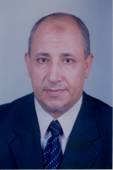Namibia Conference and Workshop
Ministry of Fisheries and Resources, Swakopmund 29 - 30 April 2013
Presenter Biographies
 PROF. MOHAMMAD I. ABDEL-HAMID, PhD.
PROF. MOHAMMAD I. ABDEL-HAMID, PhD.
Algae and Water Quality – Applied Phycology
Botany Department, Faculty of Science,
University of Mansoura 35516 , Mansoura , Egypt
Abdel-Hamid's scientific expertise started in water. Since, 1984 his scientific researches have been primarily focused on the integrated assessment, and protection of freshwater quality. He has been working with the River Nile in Egypt, for more than 25 years. Water quality characterization is the domain of his researches. Eco-toxicology of industrial pollution is a particular research topic. Bio-assessment of water quality using freshwater microalgae deserved special research interest. Toxicity assessment of pollutants, using standard algal bioassays and biosensors, is a special area of research expertise. Deep research attention was focused on using immobilized algal biosensors for bio-monitoring of water quality. He has largely contributed to the assessment and protection of water quality at both national and international levels. His work on aquatic environments gave him enormous knowledge about the ecology of freshwater microalgae. He gained deep experience, and eventually has developed good expertise in isolation, identification and culturing of microalgae. He gave considerable attention to mass production of microalgae as vital feedstock of useful bio-products and molecules from algae. Thus his research activities and talents were partially shifted towards the field of algal biotechnology. Special interest and great attention were paid to the use of algal biomass as feedstock for the production of biofuels, mainly biodiesel, bioethanol, and jet fuels.
PRESENTATION TOPIC: Wastewater treatment using microalgae - A promising environmental biotechnology
Algae are recognised to play a central role in the natural self-purification of contaminated waters. Algae based wastewater treatment processes have been gaining tremendous attentions since 1960s. All the essential macronutrients (e.g., N and P) and micronutrients (e.g., Fe, S,) are available in domestic and agricultural wastewater. Major nutrients such as N and P alone contribute to ~10–20% of production cost of algae biomass. It became evident that microalgae maintain incredible adaptation to thrive in and to treat domestic and agricultural wastewater with manifest massive growth. The resultant algal biomass has been proven to be excellent feedstock of a variety of commercial products including biofuels. The power to treat wastewaters and the massive aquatic biomass production seems a double edged beneficial process for cleaning the environment and ensuring renewable clean bio-energy. Algae-based biofuel production holds future promise for developing countries. It represents a new industry, generating jobs, enhancing GDI (Gross Domestic Income) and may lead to energy independence. Environmental factors and resources are unique for mass production of algal biomass in Africa. The present speech will throw light on Egyptian case studies focused on using microalgae for wastewater treatment with special emphasis on biofuel relevance of the resultant algae biomass. Algae biomass-to-biofuel based on the fact that algae are the most efficient biological transformers of light energy to chemical energy through photosynthesis. The chemical energy is mainly stored in oils and carbohydrates which are the feedstock of biodiesel and bioethanol respectively. Microalgae maintain incredibly high production levels of fixed oils compared to oily seed crops. This was the driving force of the current immense international concern considering algae the magic solution for the expected fuel crisis.